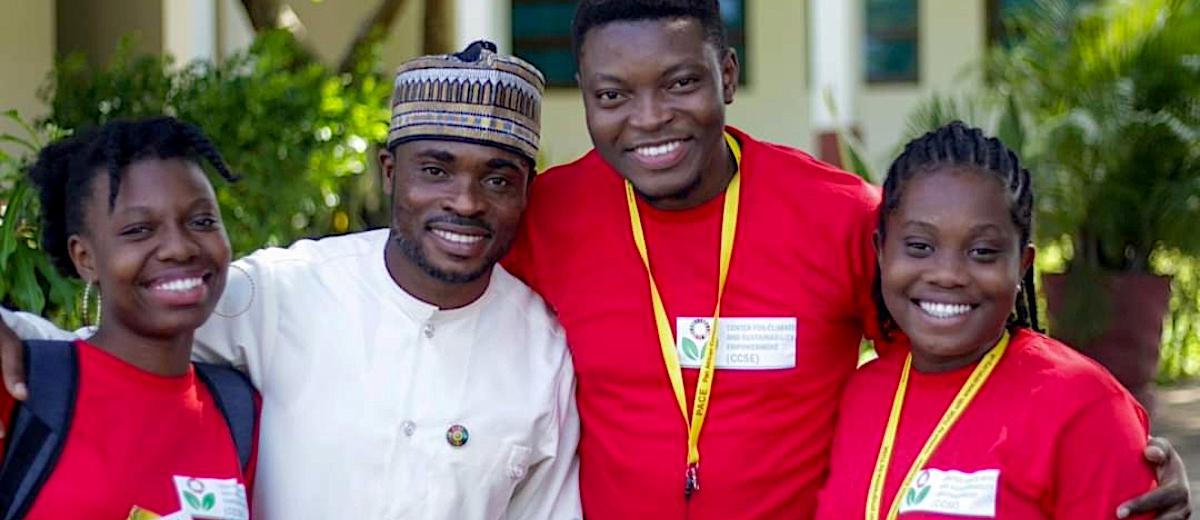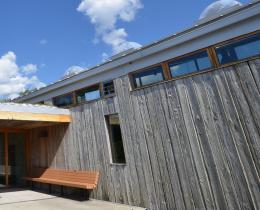Omega: Over the past decade, we have been lucky to work with many inspiring climate advocates. We've organized and convened events, engaged in United Nations Climate Change process, followed global negotiations, and collaborated with numerous partners. We are very happy to have met you in Germany during the 2022 United Nations climate conference. Can you please tell the Omega community about your organization and your mission?
Hussein: The Centre for Climate and Sustainability Empowerment (CCSE) is a youth-led nonprofit organization in Ghana. We are focused on educating, engaging, and empowering youth and women to develop capacity and innovative, locally adaptive solutions to climate change. We challenge our entrepreneurs to develop self-sustaining innovations with economic, social, and environmental impacts in mind. The organization's mission is to mitigate and adapt to the effects of climate change, especially in vulnerable and marginalized communities.
Omega: Though UN Climate process is slow and the level of progress needed at the government level can feel out of reach, the connections formed within civil society groups can lead to innovation that makes a difference in people’s lives and communities. Can you tell us the story of meeting Omega delegate Felicia M. Davis of the HBCU (Historically Black Colleges and Universities) Green Fund and the impacts that have come from your collaboration?
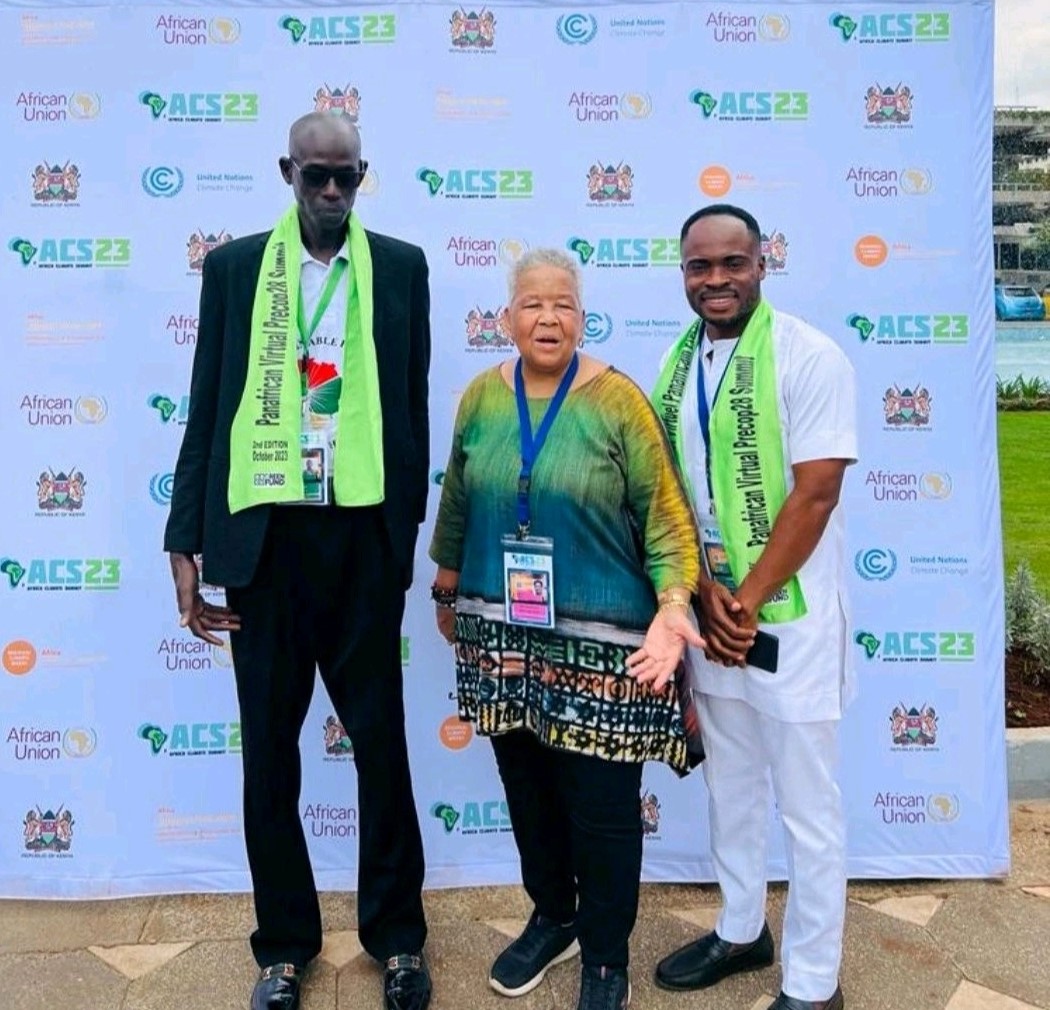
Hussein: I was introduced to Felicia M. Davis and the HBCU Green Fund network by [former OCSL director] Laura Weiland, and it has been a blessing to join this network. What started as weekly calls to prepare for the climate conferences has led to something so much greater. We kept joining the calls even after that year’s climate conference, and the network now consists of 15 young people from Sub-Saharan Africa who are working on various projects geared towards climate change education and implementing micro-projects funded by the HBCU Green Fund in their respective countries.
One example is a micro-grant for Ghana that will empower women in the eastern region of the country with a Smart Cassava Processing Center. Cassava is a major crop in the farming systems of Ghana, a main source of carbohydrates to meet dietary requirements, and a regular source of income for most rural dwellers. It accounts for 22 percent of the country's agricultural gross domestic product. However, the frying of cassava is typically done by burning firewood, which produces high volumes of smoke and poses health risks. The Cassava Processing Center will be equipped with bomgya, clean and labor-saving cookstoves that burn gari, a flour made from fermented cassava roots, and thereby reduce smoke and particulate matter within the enclosed space.
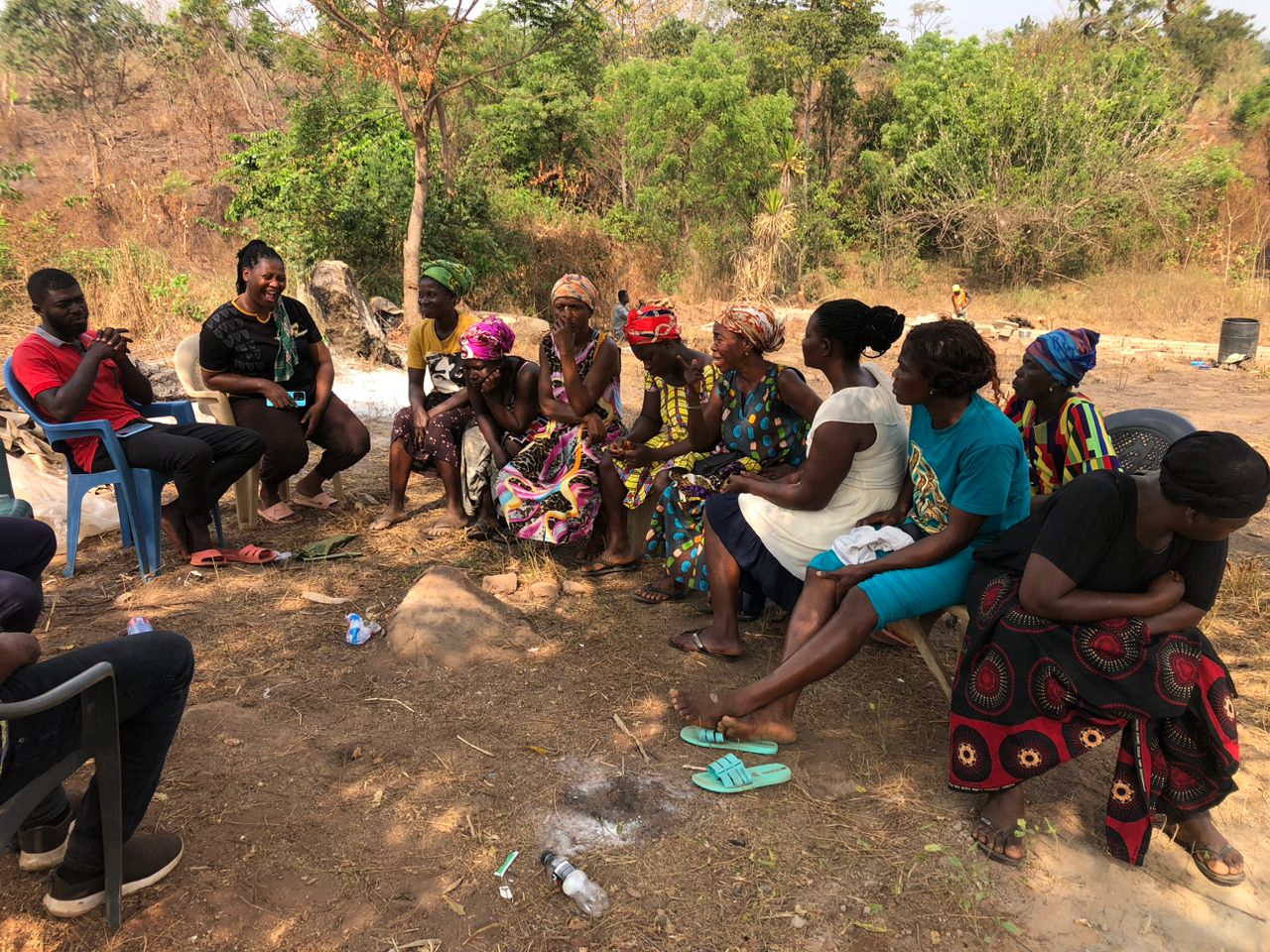
As part of the project, we are also offering training to these rural women on snail and mushroom farming as alternative livelihoods, enabling them to adapt to the adverse impacts of climate change is having on cassava production. The project has tremendous potential and will significantly enhance the lives and health of these women and their communities.
Omega: You recently shared news with us about the launch of a significant undertaking and achievement called the Ghana GLOBE Program and Greening Schools Initiative. Can you tell us about that, and how this project can enhance the students’ educational experience and foster their understanding of meteorology and climate science?
Hussein: Although climate change disproportionately impacts Sub-Saharan Africa, there continues to be a lack of climate education and scientific literacy available to students in African secondary schools. There’s also a scarcity of fine-tuned meteorological data generated from our region, which is necessary to construct accurate climate models.
The Ghana GLOBE Program and Greening Schools Initiative aims to promote scientific literacy, environmental awareness, and global connectivity among students across the country. The initiative has already begun to install weather stations and air quality monitors for data collection by 9-, 10- and 11-year-old Ghanian elementary school students. Along with this project will come grade-appropriate lesson plans, which include competencies in numerical, physical, and geographic skills.
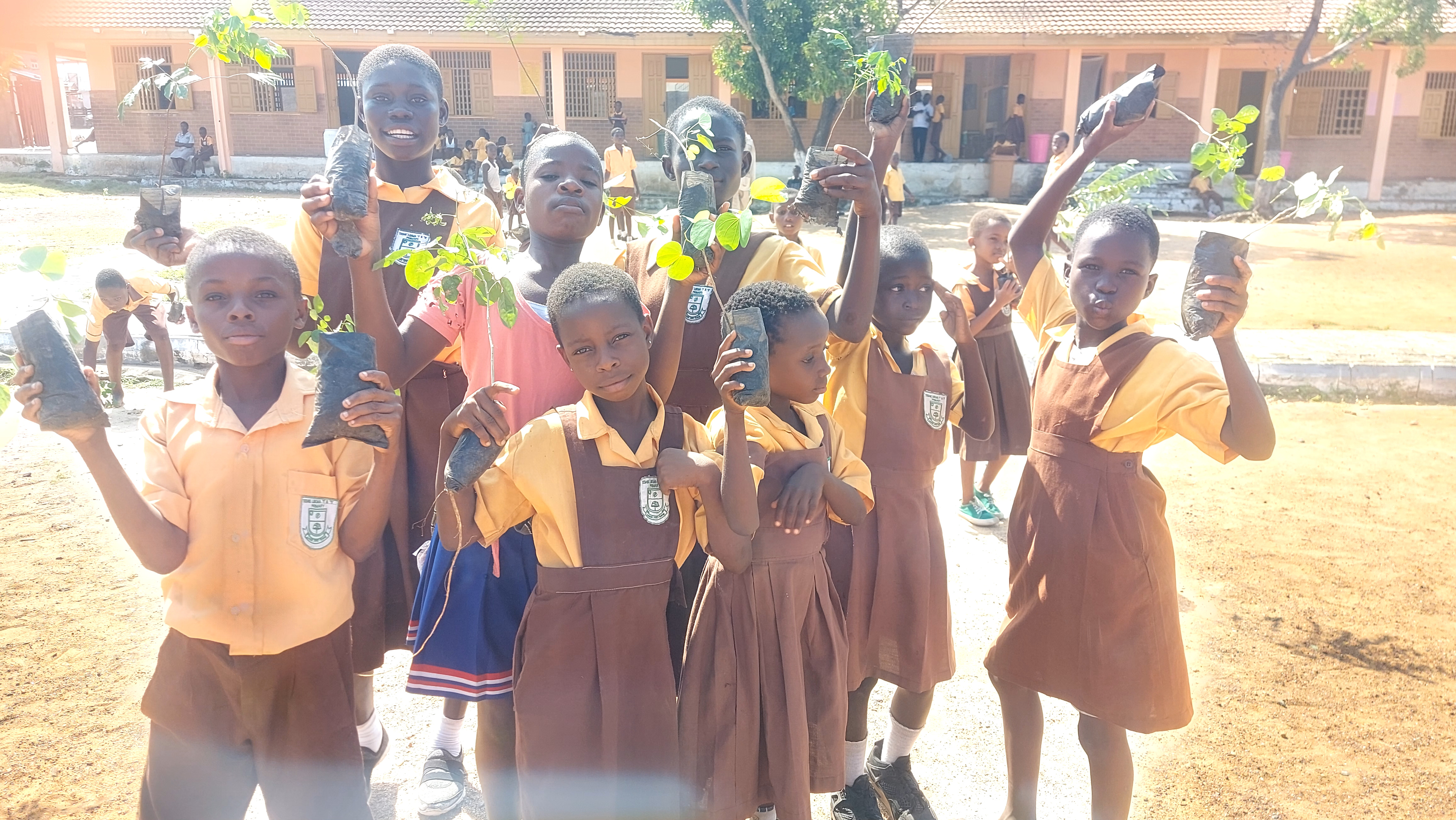
The effort is a brilliant merging of three organizations—NASA’s GLOBE Program (Global Learning and Observation to Benefit the Environment) the HBCU Green Fund Pan-Afri GLOBE program, and the Greening Schools initiative and curriculum by UNESCO. The merging of these three initiatives will not only empower students to understand and address environmental issues but also foster a sense of responsibility and stewardship towards their local environments.
Considering the scope, it was necessary to engage the Ghana Education Service (GES) allowing us to implement the initiative nationwide across the 16 regions of Ghana.
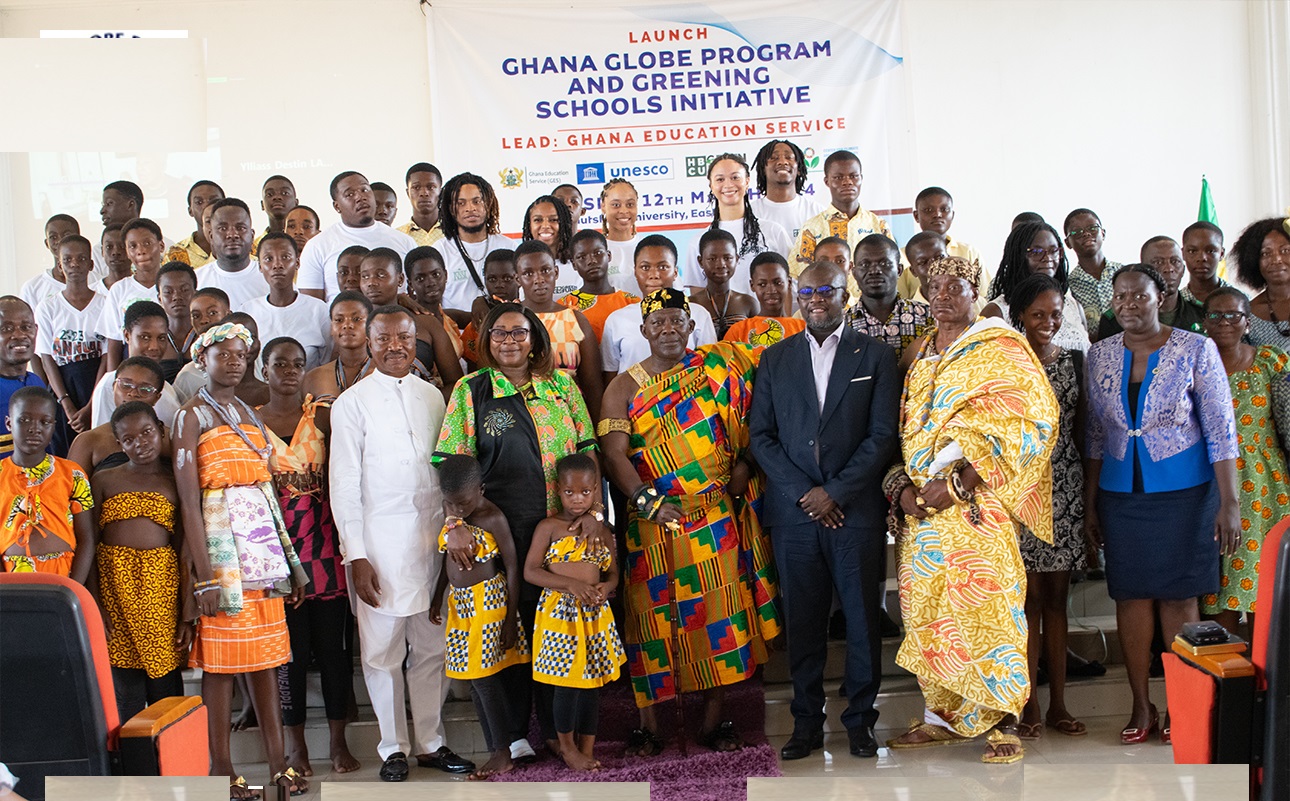
Omega: That is truly wonderful to hear! In addition to all the good work that you do at home in Ghana, you also travel for two weeks twice a year to participate in the UN Climate process, where you champion climate education, while serving as a negotiator on behalf of Ghana. We are proud to partner with you, and grateful to have a community of donors who help us make travel grants possible. Can you tell us a bit about this aspect of your work and why financing is so critical?
Hussein: The contribution and support from Omega over the past few years has been timely and tremendous. Previously, I had to participate in the climate conferences using my personal resources and savings, which was a significant drain on my finances and work. Every year, the little I saved went towards paying for flight tickets and accommodation. Consequently, although I knew attending all of the UN climate conferences each year was crucial for the progress of my work, I could never afford the cost.
In 2022, I was selected by the Ghana Ministry of Environment, Science, Technology, and Innovation as a Junior ACE (Action for Climate Empowerment) Negotiator. Unfortunately, my appointment did not include funding, forcing me to seek financial support for my new role—a substantial challenge. I managed to self-sponsor my attendance at the interstitial UN climate conference in 2022, all the while wondering where I would find funding for COP27.
Fortunately, I became aware of Omega and since then, the Omega community’s support has provided me with the peace of mind to focus on my work without worrying about securing funding to attend, and I can now actively participate in negotiations. At COP27, due to the absence of our lead negotiator, I stepped up as the lead negotiator in my area for the first time and have had several opportunities since then.
